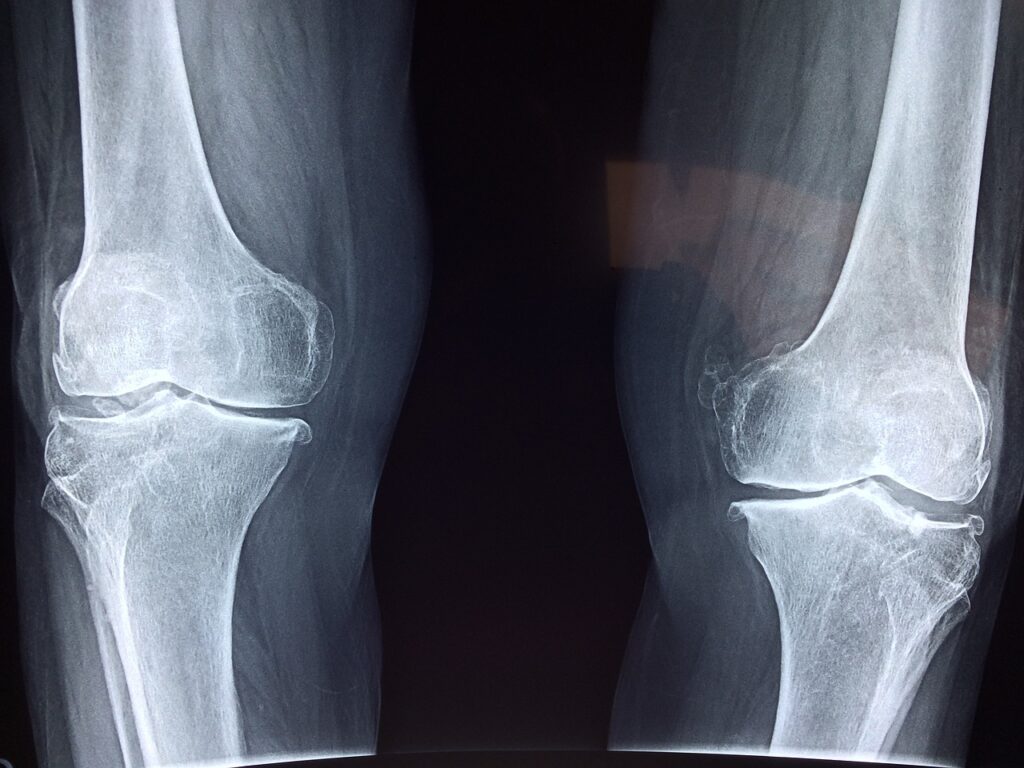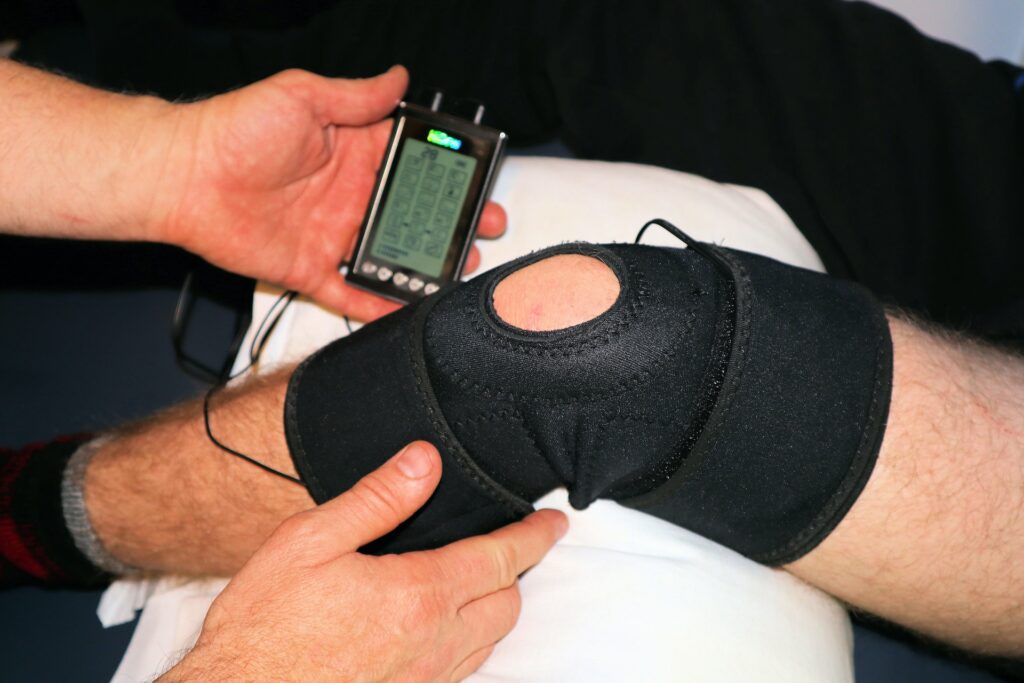Knee replacement surgery is a common procedure that involves replacing a damaged or worn-out knee joint with an artificial one. The procedure is typically recommended for individuals who have severe knee pain or limited mobility that has not improved with other treatments. While knee replacement surgery can be a life-changing procedure, it can also be expensive.
The cost of knee replacement surgery can vary depending on a number of factors, including the location of the surgery, the type of implant used, and the surgeon’s fees. In general, knee replacement surgery can cost anywhere from $20,000 to $50,000 or more. This cost can be a significant financial burden for many patients, especially those who do not have insurance coverage or who have high out-of-pocket costs.
Key Takeaways
- Knee replacement surgery is a common procedure for individuals with severe knee pain or limited mobility.
- The cost of knee replacement surgery can vary depending on a number of factors, including the location of the surgery, the type of implant used, and the surgeon’s fees.
- Knee replacement surgery can be expensive, and patients may need to consider insurance coverage and other cost considerations before undergoing the procedure.
Understanding Knee Replacement
Knee replacement, also known as knee arthroplasty, is a surgical procedure that involves replacing the damaged or diseased parts of the knee joint with artificial joint components made of metal, plastic, or both. The purpose of this surgery is to relieve pain and improve knee function, allowing patients to resume their daily activities.
There are two main types of knee replacement surgery: total knee replacement and partial knee replacement. Total knee replacement involves replacing the entire knee joint, while partial knee replacement involves replacing only the damaged parts of the knee joint.
The cost of knee replacement surgery can vary depending on several factors, including the type of surgery, the location of the hospital, and the surgeon’s fees. On average, the cost of knee replacement surgery in the United States ranges from $20,000 to $50,000.
One factor that can affect the cost of knee replacement surgery is the type of knee implant used. There are several types of knee implants available, including off-the-shelf implants and customized implants. Customized implants are designed specifically for each patient based on their unique anatomy, which can result in a better fit and improved outcomes. However, customized implants can be more expensive than off-the-shelf implants.
Another factor that can affect the cost of knee replacement surgery is the type of materials used in the knee implant. The most common materials used are metal and plastic, but there are also implants made of ceramic and other materials. The choice of material can affect the durability and longevity of the implant, as well as the cost.
In summary, knee replacement surgery is a common procedure used to relieve pain and improve knee function. The cost of knee replacement surgery can vary depending on several factors, including the type of surgery, the location of the hospital, and the surgeon’s fees. Patients should discuss their options with their doctor to determine the best course of treatment for their individual needs.
Reasons for Knee Replacement
Knee replacement surgery is a common procedure that is performed to relieve knee pain and improve mobility. There are several reasons why someone may need a knee replacement, including:
Arthritis
Arthritis is a common condition that causes inflammation and pain in the joints. Osteoarthritis is a type of arthritis that affects the knee joint and is one of the most common reasons for knee replacement surgery. Over time, the cartilage in the knee joint can wear down, causing the bones to rub against each other, which can be painful and limit mobility.
Osteoarthritis
Osteoarthritis is a degenerative joint disease that can affect any joint in the body, including the knee. It is caused by the breakdown of cartilage in the joint, which can cause pain, stiffness, and swelling. Knee replacement surgery may be recommended for people with severe osteoarthritis who have not responded to other treatments.
Knee Pain
Knee pain can be caused by a variety of factors, including injury, overuse, and degenerative conditions like arthritis. When knee pain becomes severe and affects a person’s ability to perform daily activities, knee replacement surgery may be recommended.
Overall, knee replacement surgery is a safe and effective procedure that can help relieve knee pain and improve mobility. While there are risks associated with any surgery, most people who undergo knee replacement surgery experience significant improvement in their quality of life.
Preparation for Surgery
Before undergoing knee replacement surgery, there are a few steps patients need to take to prepare themselves for the procedure. This section will outline the necessary preparations to ensure a successful surgery and recovery.
First, patients will need to schedule an evaluation with their surgeon or orthopedic surgeon. During this evaluation, the surgeon will assess the patient’s knee joint and overall health to determine if knee replacement surgery is the best option for them. The surgeon may also request x-rays or other imaging tests to further evaluate the knee joint.
In the weeks leading up to surgery, patients should focus on strengthening their knee joint and improving their mobility. This can be achieved through exercises recommended by the surgeon or physical therapist. Water exercise can be particularly beneficial for those with knee pain, as it reduces the stress placed on the joint while still providing a good workout.
It is also important for patients to maintain a healthy diet and weight, as excess weight can put additional stress on the knee joint. Patients may also need to make modifications to their home, such as installing handrails or removing tripping hazards, to ensure a safe and comfortable recovery.
In the days leading up to surgery, patients should follow any specific instructions provided by their surgeon, such as fasting before the procedure. Additionally, patients should arrange for transportation to and from the hospital, as they will not be able to drive immediately after surgery.
By following these preparations, patients can increase their chances of a successful knee replacement surgery and a smooth recovery.
The Surgery Process
The knee replacement surgery process typically involves several steps, including pre-operative preparation, anesthesia, the actual surgery, and post-operative recovery.
Before the surgery, patients will typically meet with their surgeon to discuss the procedure and any potential risks or complications. They may also undergo a physical exam and various imaging tests, such as X-rays or MRI scans, to help the surgeon determine the best surgical approach.
On the day of the surgery, the patient will typically be given anesthesia to ensure they are comfortable and pain-free during the procedure. This may be administered by an anesthesiologist, who will monitor the patient’s vital signs throughout the operation.
During the surgery itself, the surgeon will make an incision in the knee and remove any damaged or diseased tissue, including ligaments and cartilage. They will then insert an artificial knee joint, which may be made of metal, plastic, or a combination of materials. The surgical techniques used may vary depending on the patient’s specific condition and the surgeon’s preference.
After the surgery, patients will typically spend several days in the hospital to recover. During this time, they will receive pain medication and physical therapy to help them regain strength and mobility in the affected knee. They may also need to use crutches or other assistive devices for a period of time after leaving the hospital.
Overall, the cost of knee replacement surgery can vary depending on a variety of factors, including the location of the surgery center, the type of anesthesia used, and the specific surgical techniques employed. However, with proper preparation and care, many patients are able to successfully recover from knee replacement surgery and enjoy improved mobility and quality of life.
Potential Risks and Complications
As with any surgery, knee replacement surgery carries some risks and potential complications. Although the success rate of knee replacement surgery is high, it is important to understand the potential risks and complications before undergoing the procedure.
Infection
Infection is a potential complication of knee replacement surgery. The risk of infection is higher in patients who have other health problems, such as diabetes or obesity. Signs of infection include fever, chills, and redness and swelling around the knee. If an infection occurs, antibiotics may be needed, and in some cases, the implant may need to be removed.
Blood Clots
Blood clots are another potential complication of knee replacement surgery. Blood clots can form in the veins of the legs and travel to the lungs, causing a pulmonary embolism. To prevent blood clots, patients are often given blood thinners after surgery and are encouraged to move around as soon as possible.
Nerve Damage
Nerve damage is a potential complication of knee replacement surgery. Nerve damage can cause numbness, tingling, or weakness in the leg. In some cases, nerve damage can be permanent.
Other Risks
Other potential risks of knee replacement surgery include:
- Allergic reactions to anesthesia or other medications
- Fracture of the bone around the implant
- Dislocation of the implant
- Loosening of the implant over time
It is important to discuss these potential risks and complications with your doctor before undergoing knee replacement surgery. Your doctor can help you understand the risks and benefits of the procedure and can help you make an informed decision about whether knee replacement surgery is right for you.
Recovery and Rehabilitation
After a knee replacement surgery, recovery and rehabilitation are crucial parts of the healing process. The recovery period can vary from person to person, but it generally takes around 6-8 weeks for the knee to heal fully.
Physical therapy is an integral part of the recovery process. A physical therapist will work with the patient to help them regain their range of motion, strength, and flexibility. The therapist will also teach the patient exercises to do at home to continue their recovery.
During the initial stages of recovery, a patient may need to use a walker or crutches to help them move around. As the knee heals and the patient’s strength improves, they may be able to use a cane for support.
Medical equipment such as ice packs, compression stockings, and knee braces may also be used during the recovery process to help reduce swelling and promote healing.
It is important for patients to follow their doctor’s instructions and attend all physical therapy sessions to ensure a successful recovery. With time and patience, most patients are able to resume their normal activities and enjoy a pain-free life after knee replacement surgery.
Cost Factors
The cost of knee replacement surgery can vary greatly depending on several factors. Below are some of the primary factors that can impact the cost of knee replacement surgery:
Type of Procedure
The type of knee replacement surgery performed can greatly impact the cost of the procedure. There are several different types of knee replacement surgery, including partial knee replacement, total knee replacement, and complex knee replacement. The more complex the procedure, the higher the cost is likely to be.
Hospital Bill
The hospital bill can also play a significant role in the overall cost of knee replacement surgery. This can include charges for the operating room, anesthesia, and any necessary hospital stays. It is important to carefully review any hospital bills to ensure that all charges are accurate and reasonable.
Surgeon Fees
The fees charged by the surgeon can also impact the cost of knee replacement surgery. These fees can vary depending on the surgeon’s experience and reputation, as well as the complexity of the procedure.
Geographic Location
The cost of knee replacement surgery can also vary depending on the geographic location of the procedure. In general, procedures performed in larger cities or more affluent areas tend to be more expensive than those performed in rural or less affluent areas.
Insurance Coverage
Insurance coverage can also impact the cost of knee replacement surgery. Some insurance plans may cover the entire cost of the procedure, while others may only cover a portion of the cost. It is important to carefully review your insurance coverage to understand what costs will be covered and what costs will be your responsibility.
Average Cost
According to a recent study, the average cost of knee replacement surgery in the United States is approximately $30,000. However, this cost can vary greatly depending on the factors listed above.
Overall, there are several factors that can impact the cost of knee replacement surgery. It is important to carefully consider these factors and to work with your healthcare provider to determine the best course of action for your specific situation.
Insurance and Out-of-Pocket Costs
When it comes to knee replacement surgery, insurance coverage can be a major factor in determining the overall cost. Most health insurance plans cover knee replacement surgery, but the amount of coverage can vary depending on the plan. Patients should check with their insurance provider to determine their specific coverage and any out-of-pocket costs they may be responsible for.
Medicare and Medicaid typically cover knee replacement surgery, but patients may still be responsible for deductibles, copays, and coinsurance.
Deductibles are the amount patients must pay out of pocket before their insurance coverage kicks in. Copays are fixed amounts patients pay for each visit or service, while coinsurance is a percentage of the total cost of the service that patients are responsible for.
Out-of-pocket costs for knee replacement surgery can vary widely depending on the patient’s insurance coverage and the specific procedure performed. Patients should be prepared to pay for any costs not covered by insurance, including deductibles, copays, and coinsurance.
In some cases, patients may be able to negotiate with their healthcare provider to reduce their out-of-pocket costs. Patients can also look into financing options, such as payment plans or medical credit cards, to help cover the cost of knee replacement surgery.
Overall, it’s important for patients to understand their insurance coverage and any out-of-pocket costs associated with knee replacement surgery. By doing so, they can make informed decisions about their healthcare and avoid any unexpected expenses.
Cost Variations by Location
The cost of knee replacement surgery can vary significantly depending on the location of the hospital or clinic. In general, the cost of knee replacement surgery tends to be higher in urban areas and lower in rural areas.
According to a study conducted by Blue Cross Blue Shield, the average cost of knee replacement surgery in New York is $49,000, which is significantly higher than the national average of $31,000. In California, the average cost of knee replacement surgery is $44,000, which is also higher than the national average.
In contrast, the cost of knee replacement surgery in states like Kansas and West Virginia tends to be lower than the national average. In Kansas, the average cost of knee replacement surgery is $27,000, while in West Virginia, the average cost is $29,000.
The cost of knee replacement surgery in Florida, Hawaii, Massachusetts, New Hampshire, North Carolina, Pennsylvania, Virginia, and Washington tends to be closer to the national average. However, it is important to note that the cost of knee replacement surgery can vary significantly within each state, depending on the specific hospital or clinic.
Overall, it is important for patients to research and compare the cost of knee replacement surgery in their specific location before making a decision. Patients should also consider factors such as the quality of care and the experience of the surgeon when choosing a hospital or clinic for their knee replacement surgery.
Other Cost Considerations
In addition to the direct costs associated with knee replacement surgery, there are several other cost considerations that patients should keep in mind. These can include:
- Discounts: Some hospitals and surgical centers offer discounts for patients who pay for their surgery in cash or upfront. Patients should inquire about these options to see if they can save money on their procedure.
- Health: Patients who have underlying health conditions, such as diabetes, may require additional medical care before and after their knee replacement surgery. This can add to the overall cost of the procedure.
- Steroid Injections: Patients who receive steroid injections in their knee joint prior to surgery may experience a delay in their recovery time. This can result in additional medical expenses, such as physical therapy or extended hospital stays.
- Physician: The cost of the surgeon and anesthesiologist can vary depending on their experience and reputation. Patients should research their options and choose a physician who is both skilled and affordable.
- Implants: The type of implant used in the knee replacement surgery can also impact the overall cost. Patients should discuss their options with their surgeon to determine which implant is best for their needs and budget.
- Antibiotics and Blood Thinners: Patients may require antibiotics and blood thinners before and after their surgery to prevent infection and blood clots. These medications can add to the overall cost of the procedure.
Overall, patients should be aware of these additional cost considerations when planning for their knee replacement surgery. By researching their options and discussing their concerns with their physician, patients can make informed decisions about their healthcare and financial well-being.
Frequently Asked Questions
What is the average cost of a total knee replacement surgery in the USA?
The average cost of total knee replacement surgery in the USA is around $50,000. However, the cost can vary depending on several factors such as the location of the hospital, the surgeon’s fee, and the type of implant used.
What is the cost of a titanium knee replacement?
The cost of a titanium knee replacement can range from $10,000 to $25,000 depending on the type of implant used, the location of the hospital, and the surgeon’s fee. Titanium implants are generally more expensive than other types of implants.
How much does outpatient knee replacement cost?
Outpatient knee replacement can cost around $20,000 to $30,000. However, the cost can vary depending on several factors such as the location of the hospital, the surgeon’s fee, and the type of implant used. It is important to note that not all patients are eligible for outpatient knee replacement.
What is the cost of a partial knee replacement?
The cost of a partial knee replacement can range from $15,000 to $30,000 depending on the location of the hospital, the surgeon’s fee, and the type of implant used. Partial knee replacement is generally less expensive than total knee replacement.
Does insurance cover knee replacement surgery?
Most insurance plans cover knee replacement surgery, but it is important to check with your insurance provider to understand the specifics of your coverage. Some insurance plans may require pre-authorization or have specific requirements for coverage.
What is the cost of robotic knee replacement surgery?
Robotic knee replacement surgery can cost around $30,000 to $40,000. However, the cost can vary depending on several factors such as the location of the hospital, the surgeon’s fee, and the type of implant used. Robotic knee replacement surgery is generally more expensive than traditional knee replacement surgery.





